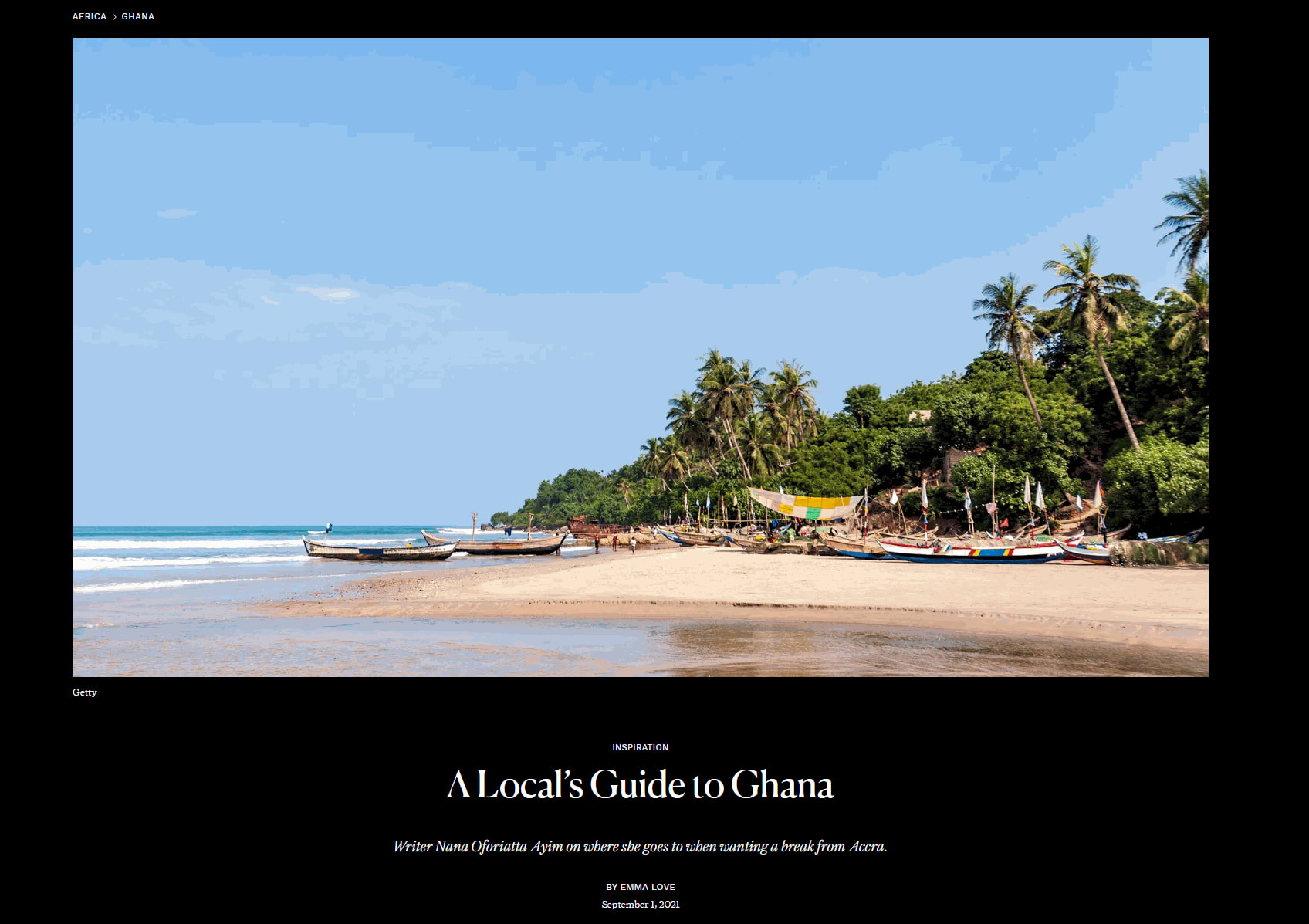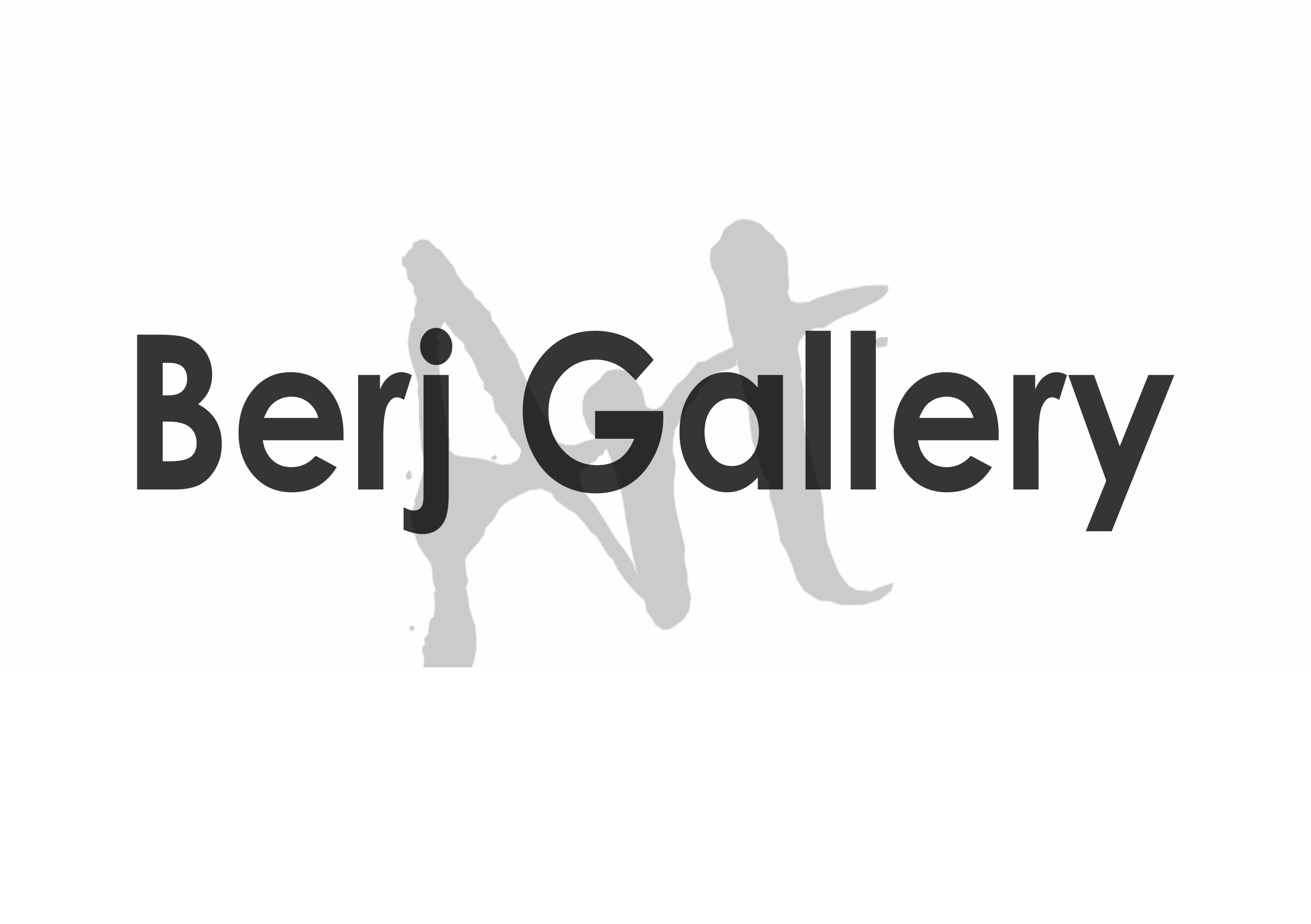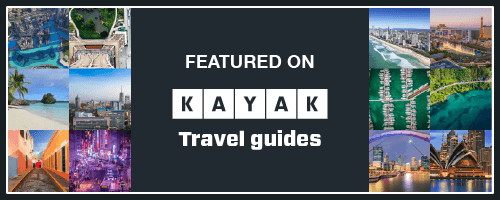
Ghanaian writer, filmmaker, and art historian Nana Oforiatta Ayim grew up between Germany, England, and Ghana. In 2002 she set up the ANO Institution of Arts and Knowledge in Accra, where she lives. She has worked on pioneering projects including curating the country’s first pavilion at the Venice Biennale and released her debut novel, The God Child, both in 2019. Next year, she is launching a print version of The Cultural Encyclopaedia, an archive of African culture in 54 volumes—one for each independent country on the continent.
This interview is part of The World Made Local, a global collaboration between the seven international editions of Condé Nast Traveler in which 100 people in 100 countries tell us why their home turf should be your next destination.
It’s a small country on the west coast of Africa but it has quite a varied landscape: there’s the coast and beaches, the rainforest, where I am from, and the savannah in the north. I love the rich and deep cultural histories we have, and the food.
What inspires you to tell African stories such as those in your novel and The Cultural Encyclopaedia?
There was such a big gap between what I saw and knew of my country and how it was portrayed in the mainstream or western media, that I wanted to help close it by telling my story and sharing some of the many varied narratives from across Ghana.
What is the creative scene like right now?
It has really picked up, and there is innovation in all areas: fashion, film, food, and music. Ghanaians are excelling across the world in almost every sphere, but even though it's much better than it was before, there is still a lot that needs to be done in terms of support and infrastructure for creatives.
Who are your favorite Ghanaian artists, filmmakers, musicians, and writers?
I think Kwame Akoto-Bamfo's sculptures are deeply thoughtful, integral, and important. I love Amaarae's music and the filmmaker Kuukua Eshun's work. My peers Nana Darkoa Sekyiamah and Ayesha Harruna Attah (as well as myself) are part of a new wave of Ghanaian writers who do readings together and support each other—it feels like an exciting moment in literature.
NO%2520CREDIT_CNT%2520(territory%2520UK%2520_Sophie%2520Knight)jpg.jpg)
Nana Oforiatta Ayim Courtesy Nana Oforiatta Ayim
Where’s great for a culture fix?
The artist Kwame Akoto-Bamfo has created a type of outdoor museum not far from Accra, which I think is vital to see. It is part of an artistic movement creating spaces outside of Accra, such as Ibrahim Mahama in Tamale and Kudjoe Affutu in the Central Region. In Accra, there are lots of exciting new arts spaces including ADA and the Noldor Residency coming up alongside more established galleries such as Berj Art Gallery, The Loom, Nubuke Foundation, and Artists Alliance Gallery. I'm working on expanding our museum sector here so it can support and be a home for some of the things that are happening.
If a friend were to visit you in Accra, where would you take them?
I’d take them to Chef Binta's Fulani Kitchen, an incredible experimental dining experience with all-indigenous ingredients, and The Mix Restaurant, which serves conceptual Ghanaian cooking. Jamestown Coffee Roasters does a great breakfast, and for local food I would suggest Pat's Vegetarian & Health Food Centre. If they wanted non-Ghanaian food, we'd go to Bôndai for sushi and Mahorgany for more vegetarian. And there are so many places to get beautiful clothes from: concept stores such as The Lotte and Elle Lokko that stock designers from across Africa, and individual boutiques such as Christie Brown, Larry Jay, Talensi, and Naadu. For drinks at the end of the day, Kōzo is a wonderful Asian-fusion restaurant with music.
What are your top places to explore outside the capital?
On the weekend, I head to the Aburi Hills where I'm creating a school, farm, and center for ANO. There’s a lovely hotel, the Hillburi—I go there for lunch—and another restaurant, Inity, in the middle of the Aburi Botanical Gardens. The new Safari Valley Resort is great for day trips or to stay—it offers a whole range of activities, including horse riding, and there are beautiful waterfalls nearby.
In the north of Ghana there’s the smart Zaina Lodge in the Mole National Park, where you can see elephants from your room. In the Western Region you can learn to surf at Ahanta Eco Lodge, and a little further there is Lou Moon Resort, which is a dream. The next place I want to try is called Meet Me There Lodge in the Volta Region. I travel around Ghana quite a lot and try to get out of Accra once a month at the very least, even when I'm busy with work. It is such a beautiful country.
Follow Nana Oforiatta Ayim on Instagram @nanaoforiattaayim
The full article can be found on
https://www.cntraveler.com/story/ghana-nana-oforiatta-ayim-locals-guide
All images and text are derived from this site


